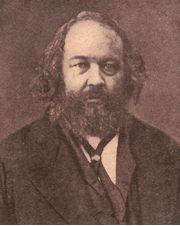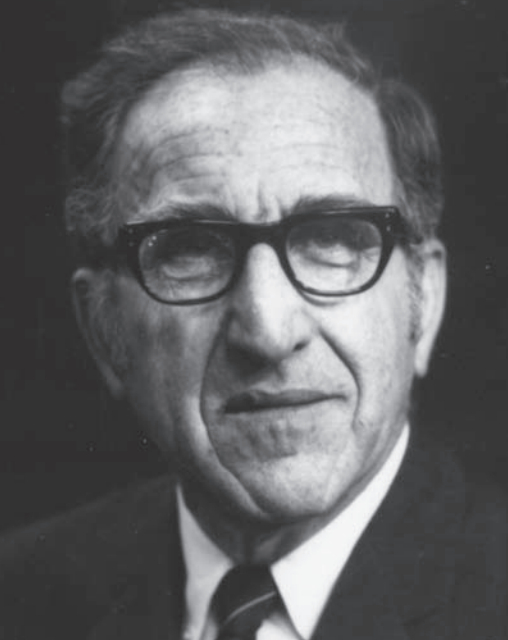May 30
Mikhail Bakunin

On this date in 1814, Mikhail Alexandrovich Bakunin was born in Russia. He left the military to study philosophy, traveling as a young man to Paris, where he met Karl Marx and such artists and writers as George Sand and Proudhon. Bakunin participated in the French and German revolutions of 1848. The following year he was arrested, convicted and sentenced to death in Dresden for various revolutionary efforts. His death sentence was commuted, but he was then extradited to Austria, where he was tortured and beaten, convicted and resentenced to death. Again, his sentence was commuted to life imprisonment.
Bakunin was next extradited to Russia, where he spent 11 years in several notorious prisons, including exile to Siberia, before escaping. He eventually made his way via Japan to the United States. Bakunin lived in a variety of Western European countries, finally settling in Geneva in 1868.
He wrote his major works after his imprisonment, including Statism and Anarchy, 1872, in which he called for women’s equality, free education and the abolishment of hereditary property. His most notable freethought essay is “God and the State” (1883). In it, Bakunin called Jehovah, of all gods, “certainly the most jealous, the most vain, the most ferocious, the most unjust, the most bloodthirsty, the most despotic, and the most hostile to human dignity and liberty.” In this article, later published in English by Emma Goldman‘s Mother Earth Publishing (1916), Bakunin wrote: “All religions, with their gods, their demigods, and their prophets, their messiahs and their saints, were created by the credulous fancy of men who had not attained the full development and full possession of their faculties.”
The powerful manifesto averred that as long as there is a master in heaven, humans will be slaves on Earth. (D. 1876)
“On behalf of human liberty, dignity and prosperity, we believe it our duty to recover from heaven the goods which it has stolen and return them to earth.”
“If God is, man is a slave; now, man can and must be free; then, God does not exist.”
“A jealous lover of human liberty, and deeming it the absolute condition of all that we admire and respect in humanity, I reverse the phrase of Voltaire, and say that, if God really existed, it would be necessary to abolish him.”— Mikhail Bakunin, "God and the State" (1883)
A. Stone Freedberg

On this date in 1908, Abraham Stone Freedberg was born in Salem, Mass. Freedberg attended Harvard College and the University of Chicago Medical School (graduating in 1934). A professor at Harvard who taught medical students physical diagnosis techniques, Freedberg also became chairman of cardiology and internal medicine at the Harvard-affiliated Beth Israel Deaconess Medical Center. As a professor and member of the admissions committee, he set out to help disadvantaged students navigate the admissions process at the medical school.
Until Freedberg invented a treatment in the late 1940s involving a radioactive iodine technique, patients with severe angina had no way to relieve their pain. In 1940 he was started studying ulcers, but his findings were not confirmed until 1983 by two Australian scientists, who would each win a Nobel Prize in 2005 for those findings. It has been confirmed by medical scientists that if Freedberg’s findings had been recognized earlier, treatments for ulcers would have been available decades sooner.
Freedberg later became a critic of doctors relying too heavily on technologically advanced testing methods, preferring the less expensive and, to him, more reliable practice of physical diagnosis. He stopped practicing medicine in his mid-90s.
Freedberg, who attended 100 classical music concerts in his 101st year, was an atheist. According to The New York Times, in Freedberg’s last days, he assessed his body and said there were no prospects “of a significant improvement in my basic status. … It is time to draw the curtain.” He died in his sleep at home in Boston at age 101. The Times obituary called him “an avowed atheist.” (D. 2009)
“He always said that he just wanted to go to sleep and not wake up. He said to us, ‘It’s time,’ and he went to sleep.”
— Freedberg's son Richard, quoted in "A. Stone Freedberg, 101, Harvard med school professor" (Boston Globe, Aug. 24, 2009)
